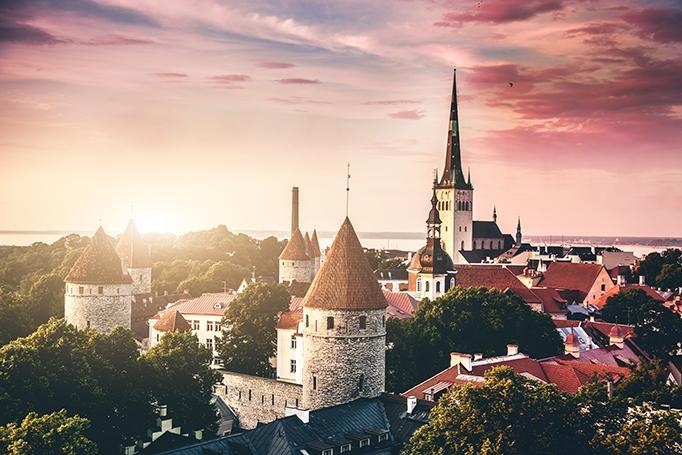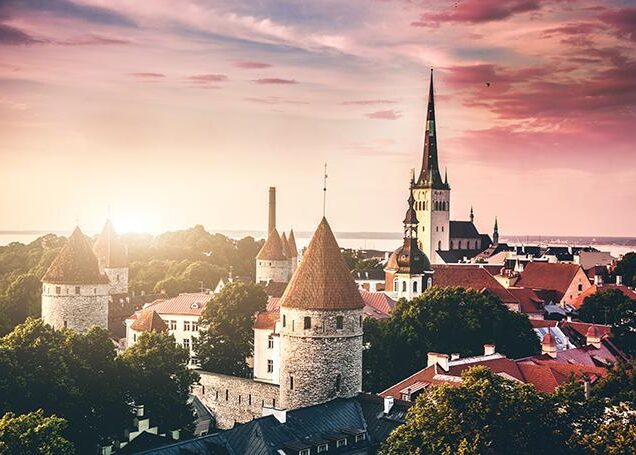

Join an Estonia adventure tour and visit the smallest and most scenic of the three Baltic states famous for its unspoilt landscapes including vast forests, boggy wetlands and sparkling lakes. Estonia’s capital Tallin is known as one of Eastern Europe’s most captivating cities, with a World Heritage-listed Old Town, fashionable boutiques, as well as shops showcasing the artisanal traditions of glassblowing, weaving and pottery.
On your Estonia adventure tour you can visit Tallin’s Art Deco cafés, elaborately decorated old-world dining rooms, glitzy bars, stylish restaurants and pounding clubs contribute to the city’s buzzing nightlife. An Estonia adventure tour gives you the chance to delve into Tallin’s rich cultural heritage and visit medieval cathedrals, the Gothic town square, Toompea Castle, cannon towers, Kadriorg Palace designed for Peter the Great, or trace Estonia’s development at the fascinating Linnamuuseum among many other fine museums and galleries. Make sure your Eastern Europe travel includes an Estonia adventure tour and visit this gem in the heart of the Baltics.

Originally a pagan territory followed by a spell under servitude to German nobility. Estonia’s history along with the other Baltic States has been a continuous struggle to maintain independence and national integrity against its larger neighbours. Russia in particular saw the benefits of acquiring Estonia’s territory for both economic and strategic reasons and took Estonia from Sweden, at the Treaty of Nystadt, in 1721. Proceeding the German invasion of the Soviet Union during WWII, Estonia became one of the 15 Soviet Socialist Republics until Mikhail Gorbachev then Communist Party General Secretary, offered the prospect of change for the Baltic States. In 1990, the Estonian Communist Party voted in favour of full independence from the Soviet Union but allowed for a six-month transitional period before making the decision final. Rapid international recognition of Estonia as a sovereign state, followed by admission to the United Nations, completed the transition to full nationhood. Estonia joined the European Union in 2004.
Estonia is a low lying country with almost half of its land mass forested and over 1,400 lakes
Our tours only operate from late spring (April/May) to early Autumn (in Eastern Europe) when the weather is generally at its best. Temperatures will vary but will still be cool in April/May and again in October. The warmest months tend to be July/August. The further south you are the higher the average temperatures. You can expect snow from December to late March.
Visit www.worldclimate.com to get an idea of what the weather will be like on your trip.
Make sure your passport is valid for at least two months after your trip.Visa regulations change frequently so it is important you consult with the embassy prior to travelling to ensure you have the correct visas. In some cases you will be crossing the borders on overnight trains and without the correct visa for your nationality you will not be allowed to enter the country and will be asked to leave the train. It is the responsibility of the traveller to obtain all correct visas needed prior to departure. Visa services like www.travcour.com can be very helpful.
Nationals of EU and EEA member states are free to enter Estonia. The required travel document for entry is a national ID card or passport.
The monetary unit in Estonia is the euro. For up to date exchange rates with your own currency visit www.oanda.com or www.xe.com.
All major currencies can be exchanged at banks and bureaux de change. Credit cards are widely accepted. Most banks will give cash advances on credit cards with a passport. There are ATMs in most towns. Traveller’s cheques can be changed in banks in most larger towns. The main banks in Estonia who serve tourists are Hansapank, Sampo Pank and Ühispank.
In restaurants 15% is usually added to restaurant bills and you are obliged to pay this. It is also customary to give the waiter 5%-10% on top of this if you are happy with the service.
You do not need to tip taxi drivers, etc but you should tip people who assist you with your luggage at hotels (don’t over-tip; your tour leader will advise a suitable amount). Tipping guides at the end of excursions and treks etc is always appreciated and your tour leader will advise you on the amount for this.
Estonia’s cities have good bus and tram networks running from approximately 6am to Midnight. Tickets are sold from Kiosks in the street or from the driver they must be validated once on board the vehicle on the spot fines can be issued if not. One of the most popular and reliable ways of getting around on your own in large cities in is by taxi. Try to find out what the going rate for journeys is before you hop into a taxi to ensure you are not being overcharged. Your tour leader will be able to provide advice on this when you stop in major cities.
Generally people find Eastern Europe to be safe and feel confident wandering alone during the day. However if you are unfamiliar with an area it is recommended that you exercise more caution at night and taxi taxis rather than walk, especially if you are a lone female traveller. In some cities bag snatching can occur so always keep a firm hand/eye on your personal items. Petty theft, especially in Tallinn Old Town, is becoming increasingly common. If there is a safe available in your hotel it is recommended you use it.
Ask your tour leader if they can recommend any restaurants in the area to suit your taste or budget or have fun exploring independently. Hors d’oeuvres are very good in Estonia and often considered the best part of the meal
You may want to try national specialities such as: Sült (jellied veal), Täidetud vasikarind (roast stuffed shoulder of veal), Rosolje (vinaigrette with herring and beets), Braised goose stuffed with apples and plums and Estonian wild mushroom soup.
National drinks include: Saare beer (dark and heavy yet tasty), Mulled wine and Vana Tallinn (a local liqueur that’s probably best left to the locals to sip!
All drinks such as bottled water or soft drinks are at your own expense at all times and are fairly inexpensive. Alcoholic drinks vary in price, with wine and beer generally being the cheapest options.
Vegetarians will find no shortage of fresh salads on offer.
220 volts / 50 Hz. Sockets are of European two pronged round pin variety.
GMT/UTC + 2. For other time differences please visit www.timeanddate.com
We are passionate adventure travelers who want to share the world and our travel experiences with everyone…
This website uses cookies so that we can provide you with the best user experience possible. Cookie information is stored in your browser and performs functions such as recognising you when you return to our website and helping our team to understand which sections of the website you find most interesting and useful.
Strictly Necessary Cookie should be enabled at all times so that we can save your preferences for cookie settings.
If you disable this cookie, we will not be able to save your preferences. This means that every time you visit this website you will need to enable or disable cookies again.
